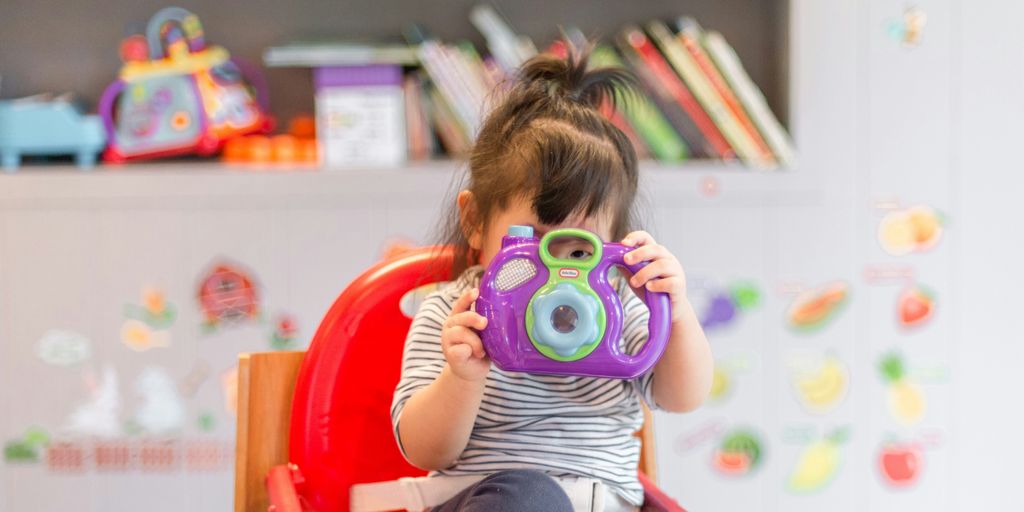
Child development is a journey filled with excitement and challenges. As children grow, they hit various milestones that indicate their progress in different areas like communication, physical abilities, and social interactions. Understanding these milestones can help parents support their child’s growth effectively. This article provides an overview of key developmental milestones and offers practical tips for parents to foster their child’s development.
Key Takeaways
- Communication skills develop through stages, starting with early signs like pointing and progressing to first words.
- Physical milestones include both gross motor skills like walking and fine motor skills like picking up small objects.
- Social and emotional development involves recognizing social cues and learning to interact positively with others.
- Fostering independence in children includes teaching self-feeding, dressing, and decision-making skills.
- Regularly tracking developmental milestones helps identify any delays early, making it easier to seek professional advice if needed.
Communication Milestones in Child Development
Early Communication Signs
From a young age, children start showing early signs of communication. These include pointing, looking at people or things, and shaking their head “yes” or “no.” These initial gestures are crucial as they lay the foundation for more complex language skills. Babies also begin to babble, making sounds that mimic the rhythm and tone of speech.
Encouraging First Words
Parents can play a significant role in encouraging their child’s first words. Simple activities like reading aloud, singing, and talking to your child can make a big difference. Repetition is key; the more a child hears a word, the more likely they are to try saying it. Celebrate their attempts to speak, even if the words aren’t clear yet.
Addressing Communication Delays
It’s important to recognize when a child might be experiencing communication delays. If your child isn’t meeting typical milestones, such as starting to put at least two words together or understanding simple sentences, it may be time to seek advice. Early intervention can be very effective. Consult with healthcare providers to explore options and resources available to support your child’s development.
Physical Development Milestones
Understanding the physical development milestones in children is crucial for parents. These milestones help track a child’s growth and ensure they are developing healthily. Here, we break down the key areas of physical development: gross motor skills, fine motor skills, and ways to encourage physical activity.
Gross Motor Skills
Gross motor skills involve large muscle movements. These include activities like sitting, crawling, and walking. Some of the most significant physical milestones—such as these—will occur at vastly different rates for each child. From sitting up on their own to throwing a ball, children gradually develop the physical skills needed for their adult lives. Parents can support this development by providing a safe space for their child to move and explore.
Fine Motor Skills
Fine motor skills involve smaller movements, such as picking up objects, using utensils, and drawing. These skills are essential for daily activities and school readiness. Encourage your child to practice these skills by offering toys and activities that require hand-eye coordination, like building blocks or simple puzzles.
Encouraging Physical Activity
Physical activity is vital for a child’s overall health and development. Encourage your child to be active by playing games, going to the park, or participating in sports. Regular physical activity helps build strong muscles and bones, improves coordination, and promotes a healthy lifestyle. Remember, every child develops at their own pace, so celebrate their achievements and provide support as needed.
Social Interaction and Emotional Development
Recognizing Social Cues
From a young age, children start to show signs of social awareness. Babies often prefer to interact with familiar faces and may cry when a parent leaves the room. As they grow, toddlers begin to engage in parallel play, where they play next to other children but not directly with them. By preschool, kids start to learn important social skills like sharing, cooperating, and making friends. Recognizing these early social cues is crucial for their development.
Encouraging Positive Interactions
Encouraging positive social interactions is key to helping children develop strong social and emotional skills. Simple activities like playing games, reading stories, and role-playing can teach kids how to communicate and cooperate with others. Parents can model good behavior by showing empathy and kindness in their own interactions. This helps children learn to manage their emotions and build healthy relationships.
Handling Social Challenges
Every child faces social challenges at some point. It’s important for parents to support their children through these times. If a child is having trouble making friends or dealing with conflicts, parents can step in to guide them. Teaching kids to use words to express their feelings can help them resolve conflicts more easily. Remember, social and emotional skills developed in early childhood lay the groundwork for success later in life.
Fostering Independence in Children

Self-Feeding Skills
Encouraging children to feed themselves is a crucial step towards independence. Start with finger foods that are easy to grasp. Gradually introduce utensils as they become more comfortable. Promote autonomy by allowing them to make choices about what they eat from a selection of healthy options.
Dressing and Personal Care
Teaching children to dress themselves and manage personal care tasks like brushing their teeth fosters self-reliance. Break down tasks into simple steps and offer plenty of praise. Self-confidence grows when children successfully complete these tasks on their own.
Encouraging Decision Making
Allowing children to make decisions helps them develop critical thinking and problem-solving skills. Start with small choices, like picking out clothes or choosing a snack. As they grow, involve them in more significant decisions to build their self-confidence and independence.
Giving your children age-appropriate responsibilities and tasks around the house can significantly boost their independence. This can include chores, self-care tasks, or decision-making opportunities.
Tracking and Understanding Developmental Milestones
Using Milestone Checklists
Tracking your child’s development can be made easier with milestone checklists. These lists help you monitor progress in areas like cognitive, social, language, and movement milestones. Milestones matter! You can easily track and celebrate your child’s early development with the milestone tracker app from the CDC’s “Learn the Signs. Act Early.” program. Start by looking at the milestones in your child’s age range. If your child isn’t meeting milestones for their age, check the lower age range to find where they are functioning. It’s common for children to have milestones spanning different age ranges.
Adjusting for Premature Birth
If your child was born prematurely, their developmental milestones might need adjustment. For example, if your child was born two months early, they might be two or three months behind. Understanding typical developmental milestones and their functions can help accommodate your child’s needs. Becoming familiar with the ranges on either side of your child’s age will give you a good picture of their progress.
When to Seek Professional Advice
Your child’s doctor is a valuable resource for tracking developmental milestones. During well-child visits, healthcare providers check if your child is “on track” for their age. They look at various aspects like physical development, social/emotional skills, and communication. If you have concerns, don’t hesitate to discuss them with your healthcare provider. They can offer guidance and support to ensure your child is developing appropriately.
Tips for Supporting Your Child’s Development
Creating a Stimulating Environment
A stimulating environment is crucial for your child’s growth. Talk, sing, and interact with your baby as much as possible. Use colorful, sturdy toys that encourage curiosity. Make sure your child has room to explore their environment safely.
The Role of Play in Development
Play is essential for development. It helps children learn about the world and develop important skills. Encourage your child to play with others to develop empathy and social skills. Outdoor play is also important for physical development.
Building a Support Network
Having a support network is vital for both you and your child. Connect with other parents, join parenting groups, and seek advice from healthcare providers. This network can provide valuable insights and help you become the awesome parent your child needs.
Remember, the love, comfort, and interaction you provide to your child is key to healthy growth and development. You are their first teacher!
Common Concerns and How to Address Them
Identifying Developmental Delays
Parents often worry about their child’s development. Nearly 1 in 4 parents have concerns about their child being delayed in reaching milestones. Signs of developmental delays can include trouble with social skills, like not smiling or avoiding other children, and issues with motor skills, such as difficulty holding a crayon. If you notice these signs, it’s important to take action early.
Working with Healthcare Providers
When you suspect a developmental delay, the best step is to consult a healthcare provider. They can help identify the cause and suggest treatments or therapies. Sometimes, delays might be linked to family history or birth order. Healthcare providers can also adjust developmental expectations for premature infants, ensuring parents know when to expect certain milestones.
Parental Support and Resources
Parents should not feel alone in this journey. Seeking advice from healthcare providers, family, and friends can be helpful. However, relying solely on the internet or social media for information can delay getting the right help. Building a support network is crucial. Remember, each child is unique, and comparing them to others might not always give a clear picture of their development.
Early intervention is key. The sooner a child gets the help they need, the better their chances of catching up and thriving.
Conclusion
Understanding your child’s developmental milestones is key to supporting their growth. Every child is unique, and they may reach these milestones at different times. By keeping track of their progress and consulting with healthcare providers, you can ensure they are on the right path. Remember, it’s okay if your child takes a slightly different route. Celebrate their achievements, no matter how small, and provide the encouragement they need to thrive.
Frequently Asked Questions
What are developmental milestones?
Developmental milestones are skills or behaviors that most children can do by a certain age. They include things like taking first steps, speaking first words, and learning to play with others.
How can I tell if my child is meeting their milestones?
You can track your child’s progress by using milestone checklists, observing their behavior, and talking to their doctor during regular check-ups.
What should I do if my child is not meeting milestones?
If you notice your child is not meeting their milestones, talk to your doctor. They can help assess your child’s development and recommend any necessary interventions.
How do premature births affect developmental milestones?
Children born prematurely might reach milestones later than their peers. It’s important to adjust your expectations based on their adjusted age, which takes into account their early birth.
What are some ways to support my child’s development?
Creating a stimulating environment, engaging in play, and building a support network can greatly support your child’s development. Regular interaction and encouragement are key.
When should I seek professional advice about my child’s development?
If you have any concerns about your child’s development, it’s always best to seek professional advice. Early intervention can make a big difference in helping your child catch up.






